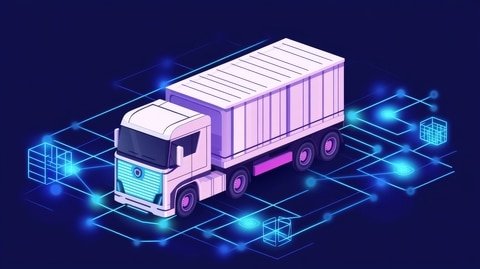AI Tech Transforms Duty Risks to Strategic Wins
Today’s tariff-riddled landscape has transformed customs compliance from a bureaucratic checkpoint to a mission-critical function.
Importing goods is no longer simple. Tariff news seems to change every day or so. Tighter regulatory scrutiny and growing supply chain complexity are enhancing risk. Customs compliance problems lead to overpaying duties, delayed shipments, even legal tariff.
The good news? With the right partner and modern technology, customs compliance can be simple, strategic—and even profitable.
The High Cost of Getting It Wrong
Mistakes in customs compliance aren’t just paperwork problems. They can lead to serious financial losses and supply chain disruptions. One major retailer uncovered millions in overpaid duties after a thorough audit revealed tariff classification errors. And a tech firm saved $3.75 million after identifying inconsistencies in its customs declarations.
These aren’t isolated cases. They’re typical of opportunities businesses miss by not modernizing their customs practices.
Because even small oversights – like using incorrect Harmonized Tariff Schedule (HTS) codes or the wrong INCO terms – can trigger to costly fines and unnecessary delays. Customs officials may inspect every container, hold your goods or impose penalties.
Tariff Engineering and Customs Compliance
The pressures to adapt are escalating as global tariff policies grow more unpredictable.
The U.S. alone has reinstated, expanded and paused tariffs on imports from a variety of countries. this includes China, which has been the factory of the world for much of the previous two decades.
China, the EU and other countries and trading blocks have followed. Keeping up with changes makes tariff compliance more essential than ever. Businesses must constantly monitor tariff changes, apply the correct classifications, and understand how international trade rules impact their costs and risks.
Many companies have increased their efforts at tariff engineering. This strategy involves structuring products, sourcing and manufacturing processes to reduce duty costs legally and efficiently.
But in years past, it was easy to add some Velcro to that Santa suit. Then companies could argue that they were importing duty-free “festive articles.” Customs classified Santa suits with zippers, alas, as clothing – requiring steeper tariffs.
In other examples, a company might import individual parts instead of a finished product. The parts would fall into a lower tariff category.
But over the last few years, tariff engineering has become more complex. Operators can’t just list a new country of origin and expect to maintain customs compliance.
Now, global trade changes force companies to move entire production systems to new countries with more favorable trade agreements. That’s a lot tougher for companies to accomplish. But countries from Vietnam to Mexico have benefited.
When done properly, tariff engineering can deliver significant savings and help protect profit margins in a high-tariff world. But companies still have to make sure they comply with all customs duties and regulations.
Technology Makes Compliance Easier
Technology can make that compliance easier. AI and machine learning can simplify and strengthen customs compliance. And Tompkins Ventures knows which partners deliver technology that works – and what to stay away from.
The right partners with right advanced tools can:
- Automate classification and documentation
- Detect discrepancies before they become liabilities
- Recover overpaid duties
- Monitor ongoing trade rule changes in real time
These solutions work.
An automotive client reduced its annual duty costs by 30% by improving its customs processes. A food importer avoided $6 million in penalties after our partners corrected its INCO term usage and negotiated directly with customs officials.
Move from Risk to Opportunity
Protecting the bottom line while importing and exporting parts, raw materials and goods is tough enough. Duty rates, free trade agreements (FTA) and trade compliance rules seem to change at a whim.
But with the right partners, customs compliance doesn’t have to be as complex. In fact, ensuring compliance can become a strategic advantage. Companies can save time, reduce costs and avoid penalties.
Don’t know where to turn in a world where customs and border protection have been transformed? Tompkins Ventures can help companies that realize they need more than a customs broker.
Experience easier customs compliance in a topsy-turvy world. Let’s connect.
Related Reading
- Workforce Development for Reshoring American Manufacturing
- Customs Compliance – Powered and Streamlined via Artificial Intelligence!
- Why the Best Consulting Firms Can’t Match B2B Matchmaking

Tompkins Ventures matches your enterprise’s challenges with our network of 1000s of Commercial Partners, Capital Partners and Consulting Partners. Our toolbox is unlimited, as every Tompkins Ventures Partner has decades of experience helping companies address the five major factors for business success: Leadership, Capital, Technology, Supply Chain/Facilities and Procurement. In today’s business environment of continual disruption, even the best companies do not do everything great. Your core competency is your business. Our core competency is selecting the right Partner(s) to work with your executive teams to make good companies great. Business strategy and supply chain expert Dr. James A. Tompkins founded Tompkins Ventures in 2020. Our network is based in the U.S. but operates on all continents except Antarctica.

